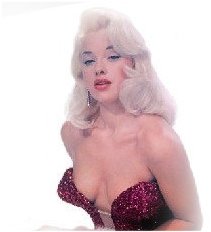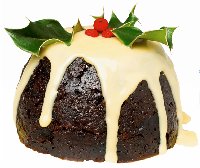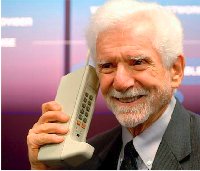|
HOME HISTORY PHOTOS & YARNS STORIES
Jolley’s Boathouse, May 2013 Opinion: Philip White - INDAILY
YOU wouldn’t credit it. The Hogarth Club turned 40. It was formed by businessman Malcolm Elliott, of the Super Elliott bicycle manufacturers, and a gang of other well-schooled Adelaide dissolutes, many of them journalists, some of whom became editors before descending to the lofty incomes of the nefarious public relations world, but also the odd lawyer, one of whom became Premier, and a sprinkle of thespians, one of whom became a beloved clown but started out in theoretical physics. And others, of course. Complex mob. The Adelaide Hogarth was always a bit more Goon Show than its London namesake, which lasted from 1858 to 1861 and was a radical artists’ group which splintered, in turn, from another radical artists’ splinter-group called the Pre-Raphaelite Brotherhood. The PRB mob was opposed to the use of so much bitumen in the tinctures used by painters of the day. The PRBs were gutses for colour. The Art Gallery of South Australia has some fine examples of their vivid work: look for Dante Gabriel Rossetti, Edward Burne-Jones and William Holman Hunt. Schmaltz.. Rather than revere and promote vibrant colour in their artfulness, the Adelaide lot always met upstairs in Chesser Cellars, in the clubby privacy of the Hogarth Room, where prints from William Hogarth adorned the somber, timber-panelled walls, giving the whole thing the atmosphere of one of those gloomy old paintings whose pigment was full of tar. However, the general behaviour of the Adelaide lot was more colourful than the room. Hanging around that table – upon which, I believe, the last drafts of the Australian Constitution were honed – were Hogarth’s grim satires warning against the over-consumption of gin. Hogarth considered beer the better beverage for Englishmen. II was introduced to the table at an early age, and immediately noted it was free of women, which was a trouble to me. I love ’em. Especially the smart ones. Samela Harris sometimes attended, but usually sat up the other end. Given the original Hogarth Club’s hatred of bitumen in the tincture, I was always fascinated by the Adelaide mob’s fearless attitude to the remorseless schlücking of it in wine, especially if it bore a high price and was brought there by somebody else. Regardless of their fat stipends, notable gentlemen, one of whom warned me straight off that he was unlikely to ever give me a job, but that I may shape up in time, tended to leave their Hungry Dan’s aside until my bottles were pillaged. I could never blame them. One of the loveliest wines I’ve ever had, just for example, was a pre-war Pinot noir from Chile which David Wynn had given me. I took that to the Hogarth, and while it finished and won its sprint in unseemly haste, I have never seen anything like it since. There are six long-standing rules of the Hogarth Club, the first being that Philip Satchell must always have the cold soup. The second barred Wayne Anthony from port, while the third ruled that the late Tony Short was banned from ever telling the white gorilla joke. Four: Edmund Cyril Colbeck Pegge is quite simply barred from the table for life, a law Pegge belligerently insists on breaking; five: if a member brings a guest more than twice, that person is then a member and should thenceforth pay for their own lunch. Regulation six declared that no gentleman should leave the room until requested to do so. Then there came the rather unusual regulation that dessert should be sung. As landlord Primo Caon, and others before him, offered a choice of desserts, the mob decided that the best choice was the one whose name could be best sung to the tune of a well-known melody; any melody. On a good day, especially when the port was already properly broached, the Hogarth could put up a damned respectable male voice choir. This was often known to swell in especial mellifluence after dessert was had. Eventually, Papa Caon famously found the financial regulations of the day impossible to abide, and Chesser closed. The Hogarth now meets at Jolley’s Boathouse, where the 40th anniversary lunch was bulldozed. As if to punish their parsimony, Jolley’s charges a damn lot more than Caon ever did. Go get ’em, Jolley’s. Before I ran to the country and became a much less regular attendee, I strove to take fascinating guests, especially women. I doubt that anyone will match Tony Brooks arriving with the great New South Wales politician Billy Wentworth, descendant of the fathers of that colony of the same name; he was Mungo McCallum’s uncle. But I tried. That magnificently thirsty writer Shiva Naipaul was at the front of my attacking cadre, but I preferred to take women when I could find them. I recall a rather told-you-so reception to my prickly guest, the chef and author Gay Bilson, and precisely the opposite when I arrived with the exotic dancer, Doody, who was far too smart for the ones down our end.One principal woman I wish I’d had the nous to invite was that absolutely unique bush lady and Mayor of Port Augusta, Joy Baluch. She woulda shredded ’em. But there we were, sitting at our fat 40th anniversary table the morning after her death of cancer at 80, and I raised a toast to her. In the very early ’80s, when Australia’s wine promotion scene swarmed with counts from Champagne, promoting the fizz from that region – there are counts everywhere in Champagne, many of them hired – I was invited to a special luncheon at Neddy’s, where one of these said counts was to award Joy a special gong from Champagne for her services to tourism in countryside Australia. To protect the innocent, if any of them ever existed and survive, I’m probably pleased that I can’t seem to find my notes from that day, and have forgotten the name of said count and the famous fizz he represented, but my recollection is otherwise precise. The count was a slender tailored suit, all conservative poshness from Reims, somewhat Germanic in attitude. Good English, quaint accent, impeccable manners. I was there, reasonably well-dressed but with punk hair. Kevin Rasheed was there, having won something for his exemplary Wilpena Pound resort in the Flinders, in new moleskins and a blue-and-white striped shirt and navy blazer. There was Theo, Joy’s husband, who spoke very little English and seemed happy to nod off to slumber during a meal that must have looked to him like something served straight from a kitchen in outer space. Theo was already ill. He wore a suit that appeared to have been bought when he was several stone larger. And then there was Joy. Joy was a tall lass, even for a bushie. A statuesque, well-built, outspoken, freckly fanger with a ranga afro beaten only by that mighty New Zealand author, Janet Frame, she arrived at table in a stylish fake fur over a bright red silk negligee consisting of long trousers with lace cuffs touching her strappy stilettos, and a matching chemise, which promoted her handsome freckled chest. Between the blunt bush lingo of Joy and hubby and Kevin and wife, and my attempts at being fluent in the language, lure and lore of Champagne, said count seemed rather lost. While his eyes kept falling upon certain parts of Joy, one wondered what he imagined these resorts to be like, these outback oases he’d been sent to the other end of the earth to acknowledge if never ever actually, er, visit. And he seemed to get stuck on chef Cheong Liew’s stunning kangaroo sashimi, which may have been illegal, but was quite appropriately raw. “I was bloody shocked when the lad arrived at my place from the couriers with that bloody giant bottle of Champagne,” Joy told the count of the day she learned of her gong at her Pampas Motel in Port Augusta. She was always more of a worker than a drinker. “He said, ‘Shit you must be flash, Missus, getting your piss sent in from Champagne’. “And you know,” she continued, “it’d be raining bloody brick shithouses before anything like that hit me.” No it wouldn’t, you dear departed warrior queen of the desert’s edge. We know few of the wildnesses you encountered in your constant battle to have your wilderness patch recognised. I apologise for never inviting you to the Hogarth. It might have been raining bloody brick shithouses, but your fearless discourse and delivery would’ve bounced ’em off the oak-panelled walls. Fair bloody dinkum. And happy 40th, you old bastards. drinkster.blogspot.com
In the late seventies or perhaps early eighties Edmund Pegge attended the Hogarth Club for the first time. No-one present could remember afterward what happened, or who brought Pegge, but it was an incredibly long and boisterous lunch, ending at about 9pm in a state of confusion. Numerous of our spouses, understandably worried, had phoned the police and several hospitals, seeking information. At lunch the following month it was agreed that Pegge was the catalyst and main reason for the unseemly riot and on a show of hands he was banned for life. Never to be permitted to attend again. Pegge returned to England where he lived and worked for much of the time. Two years later he returned to Adelaide and an Anonymous Gentleman agreed to smuggle him into the club in disguise. On the appointed day, at the Anonymous Gentleman's house in Norwood, Pegge was embellished with a false moustache and beard and very European-looking black felt hat. The pair then rode into town by bus. Numerous passengers regarded Pegge with suspicion, many quite nervously, for though the Anonymous Gentleman had assured him that the disguise was perfect it did look very false indeed. Like a chap with a poor toupee that can be spotted instantly from a hundred yards away, when he thinks he's getting away with it. When they arrived at the Club, deliberately late, there was a good crowd assembled. Roughly half of those there recognised Pegge instantly and turned away to look out the window and burst into laughter; the rest assembled did not know who he was but wondered why a person had arrived in a fake moustache and beard. Pegge was introduced as Heinrich Muller, a thick German playwright with a thick German accent and so good was the acting in response that he thought he'd gotten away with it. For about two hours. When it dawned on him that he'd been sprung long ago he silently and with great dignity rose and disappeared through the back door of the room. When he returned he had removed the disguise and was wearing a toilet seat around his neck and then by god it was on again for young and old, another disgraceful episode and so at lunch the following month we had to ban him again. Forever. Back to England he went and back he came again, two or so years on and soon he called on the Anonymous Gentleman to discuss the means by which he might gain entry to the Club once more. Another disguise did not seem to be a good idea. I must set the scene for what eventuated at the next luncheon. The Hogarth Room was long and narrow, the table seating six down each side and one at each end, making fourteen in all. It was covered with a fine white linen tablecloth. The Anonymous Gentleman had found that it was to be a moderately small gathering, roughly eight Gentlemen intending to come. Armed with this knowledge, Pegge arrived early, settled himself down under the table at the far end and waited. The Gentlemen arrived at around 1pm, stood around and chatted, helping themselves to the excellent antipasto as was the custom. At perhaps 1.30pm they seated themselves around the table, at the window end rather than the far end where Pegge was lurking. The meal was served and the chatting began. At precisely 2.30pm Pegge lit his pipe up under the table and a vast cloud of smoke billowed forth, which greatly startled the Gents. Then Pegge popped his head up and said "Hello chaps!" It was a magic moment, unforgettable. He was banned again for attempting to frighten everyone to death. On one further occasion, though Pegge did not attend the lunch, he did burst upstairs wearing a balaclava and carrying a fearsome automatic weapon, shot every Gentleman dead and disappeared. You couldn't get away with that these days, a SWAT team would be pushing your head into the concrete within minutes. He was of course banned again. Forever. And still is. And so he should be. But he was at lunch again last month!
It was never the idea that the Hogarth Club should be a mixed-gender gathering. Men sometimes have a need to be together without their women and the reverse is also true. It has always been a men's group, with one notable exception. The eminent journalist and daughter of Max, Samela Harris, was an early member, the only woman to come regularly for many years. The reasons why she was accorded this honour are lost in antiquity, but we do know that in order to gain admittance Sa had to agree to be an Honorary Gentleman for the duration of the lunch each month. She was accorded the appellation 'Bumpy Chap' for obvious reasons but if the reader cannot work them out perhaps the photo at left will help. Several Gents have brought female guests along from time to time and all have agreed to be a Bumpy Chap for the duration of the lunch.
In bygone days at the Chesser Cellars there was a choice of desserts, usually a choice between two. It was always a difficult decision. Someone un-named, possibly Brooks, or it could have been Tony Short, suggested that we could sing the pudding and the best or loudest song would determine the choice. A typical song, made up on the spot, might be: "Oh Christmas pud, oh Christmas pud, your nuts and dates and custard good", or "Strawberry flan so good for a man, with us since the world began", or perhaps "Nasty German cheesecaken, cheesecaken cheesecaken...". Both words and tune would be improvised on the spot together with various forms of percussion and the results were often surprisingly good. There would then follow a vote for which puddin' had won. The silly thing was that once the voting was done each Gentleman would order whichever puddin' he preferred anyway.
For several decades the Hogarth Club has maintained a set of lyrics for all the most popular Christmas carols. These are produced at the December luncheon and after the main course the Gentlemen sing in fine voice. Paul Lloyd would accompany on flute and Wayne Anthoney often on harmonica. On one warm and memorable day, with the windows overlooking Chesser Street open and a good gathering of Gentlemen in full voice, the carols could be heard for quite a distance. A chap passing in the street below heard them, entered the Cellars, climbed the stairs and in a cultured European voice, perhaps Dutch, said it sounded very beautiful and with the glimmer of a tear in his eye, asked if he might join us, to which request of course we heartily agreed.
W. Anthoney wrote two plays for voices to be performed unrehearsed at Christmas luncheons. The first was "The Destruction of the Chesser Cellars by Fire, Christmas 2001". The second was "The Great Christmas Turkey Fiasco", performed without rehearsal at the Christmas luncheon of 2003. We are lucky to have a recording of this piece and it may be listened to by clicking HERE.
The first mobile phone many Gentlemen saw was brought to an Hogarth Club luncheon in the mid eighties by Bumpy Chap Sa Harris. We were most intrigued, passing the device around the table and examining it. It was quite large and very heavy. Paul Lloyd, seated next to Sa, was especially intrigued and enjoyed playing with it. Abruptly a waiter appeared in the doorway, asking, "Excuse me, is there a Samela Harris here?" "Yes, me" replied Sa, to which the waiter responded, "There is a phonecall for you downstairs." Sa excused herself and went downstairs to take the call, which of course was coming from Paul Lloyd upstairs, using her mobile phone.
Sa writes: Oh yes, that first mobile phone.
That was back in the mid 80s when I was the Back Chat columnist (at The Advertiser) and I got to do all sorts of interesting things. Telstra asked me to use the phone for a while to promote it. Yes, it was as big as a brick and I think it had to have a big case in which its charging apparatus had to be carried.
The big problem with it was that no one else had one and there was no network as such. So one did not get a lot of calls. Calls were very expensive from it, but Telstra was paying. The big game was to ring the talking clock in London with it. And I think that is what we did at the Hogarth Club, everyone having a "chat". |

 BUMPY CHAPS
BUMPY CHAPS SINGING THE PUDDIN'
SINGING THE PUDDIN' CHRISTMAS CAROLS
CHRISTMAS CAROLS CHRISTMAS
PLAY-READINGS
CHRISTMAS
PLAY-READINGS MOBILE PHONE
MOBILE PHONE